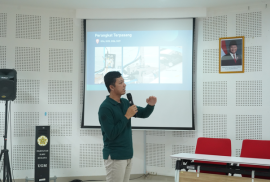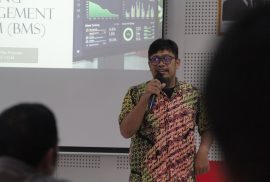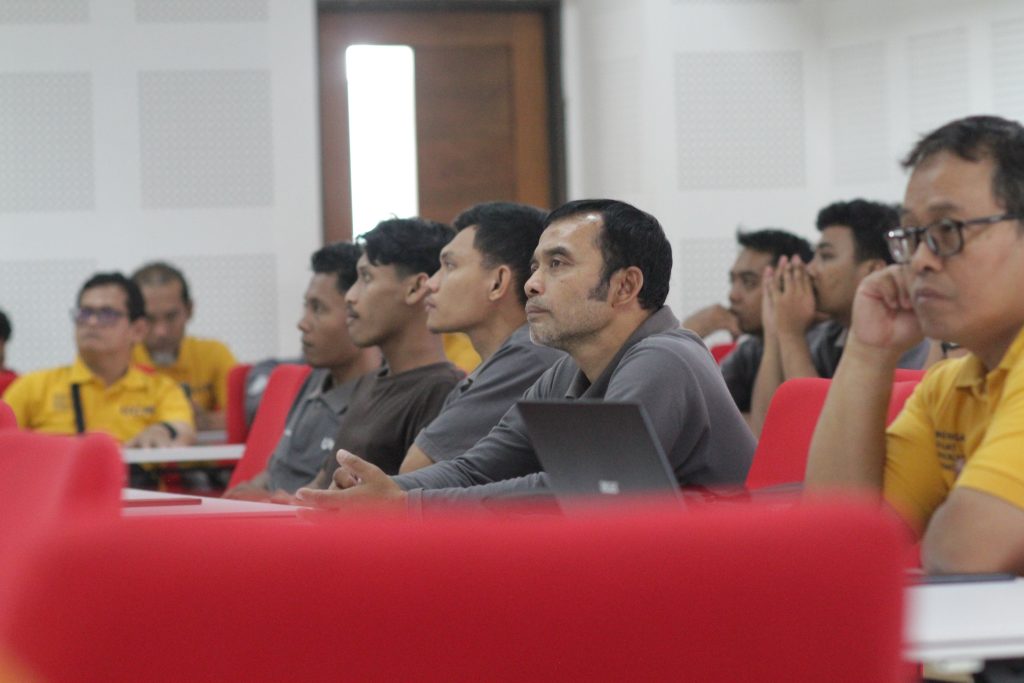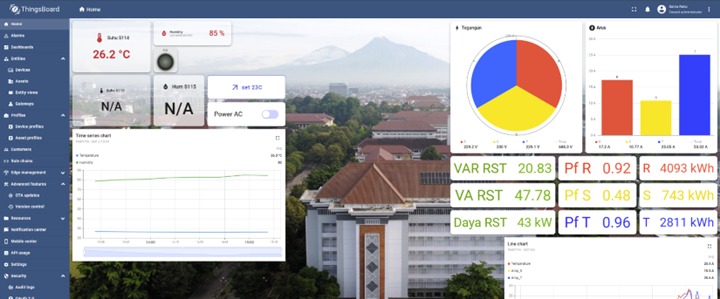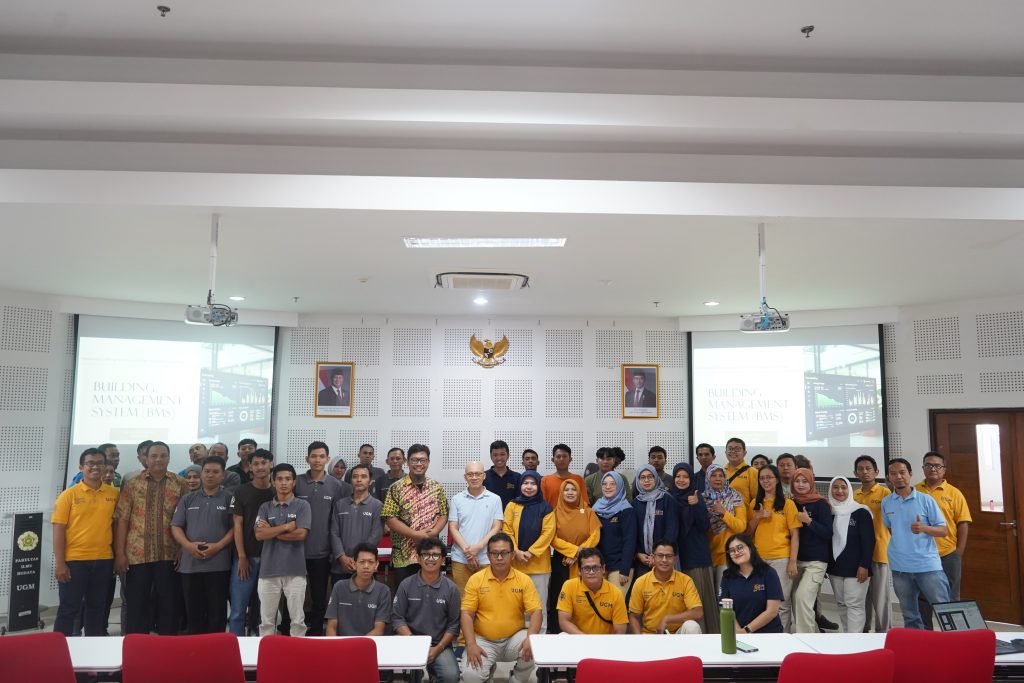Yogyakarta, December, 12, 2025 – The Faculty of Cultural Sciences, Universitas Gadjah Mada (FIB UGM), officially launched the Implementation of an Internet of Things (IoT)–Based Smart Classroom System for Room Temperature Automation and Monitoring on the 7th floor of the R. Soegondo Building.
This activity is part of the UGM Sustainability Campus Action Program of the Faculty of Cultural Sciences 2025, which aims to optimize the management of learning spaces through the efficient and sustainable use of digital technology. In its initial phase, the IoT-based Smart Classroom system has been installed and operated in four rooms within the Faculty of Cultural Sciences as an effort to enhance comfort and effectiveness in academic activities.
During the launching event, the FIB UGM Information Technology Team presented the application dashboard used to operate the Smart Classroom system. The dashboard enables centralized control and remote monitoring of room temperature. The system operates using the UGM WiFi network as its main infrastructure. As long as the WiFi connection is active, the system can function optimally; however, when the network is unavailable or disrupted, the automation system will also cease to operate.
The launching event was attended by faculty leaders, representatives of lecturers, educational staff, students, and technical support teams. The series of activities included remarks from faculty leadership, implementation briefings, a technical presentation by the FIB IT Team, and the official launch of the IoT-based Smart Classroom system. In the final session, participants were invited to visit the rooms that have been equipped with IoT-based temperature control devices to observe the system’s implementation firsthand.
The implementation of the IoT-based Smart Classroom aligns with FIB UGM’s commitment to supporting the Sustainable Development Goals (SDGs). The provision of a comfortable and adaptive learning environment supports SDG 4 (Quality Education). Energy efficiency through automated temperature control contributes to SDG 7 (Affordable and Clean Energy) and SDG 13 (Climate Action). Furthermore, the use of technological innovation in campus facility management reflects support for SDG 9 (Industry, Innovation, and Infrastructure).
Through the implementation of this system, FIB UGM reaffirms its commitment to continuously integrating technology, humanistic values, and sustainability principles in the development of its academic environment.
[Public Relations of FIB UGM, Alma Syahwalani]

